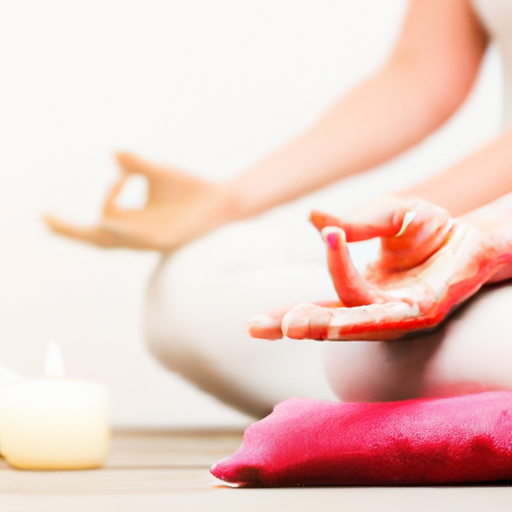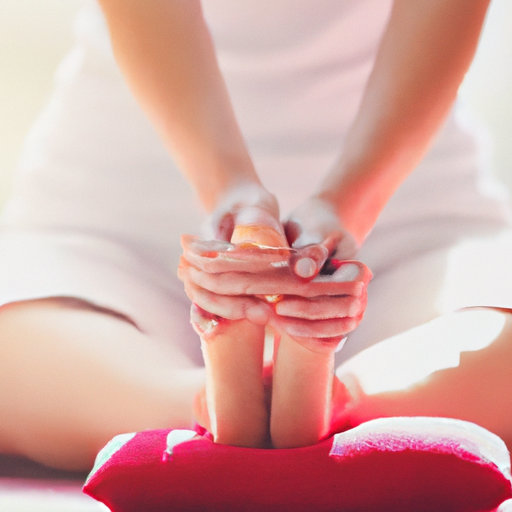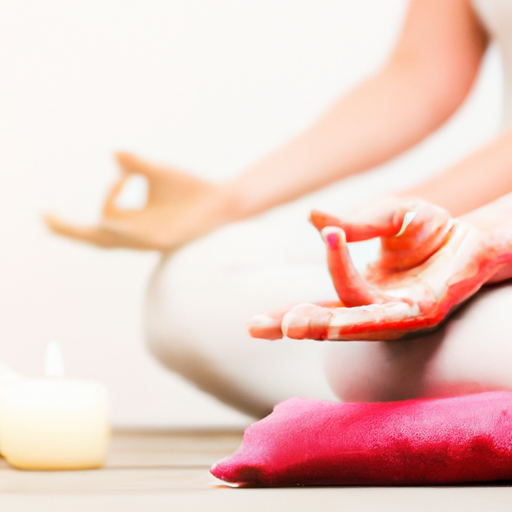
Have you ever wondered how Reiki can help improve your physical and emotional well-being? Well, the practice of Reiki is believed to promote balance and harmony in the body, mind, and spirit, ultimately leading to better overall health. In this article, we will delve into the various ways that Reiki can support your well-being, both physically and emotionally. So, sit back, relax, and prepare to learn more about the amazing benefits of Reiki.
When it comes to physical well-being, Reiki has been known to help alleviate pain, reduce inflammation, and boost the body’s natural healing abilities. By channeling the universal life force energy, Reiki practitioners aim to remove any blockages or imbalances in the body’s energy flow, allowing it to function optimally. This can lead to a reduction in physical ailments and increased vitality. Additionally, Reiki has also been found to have a positive impact on emotional well-being. Stress, anxiety, and depression are all too common in today’s fast-paced world, but Reiki can offer a calming and soothing effect on the mind. By promoting relaxation and reducing negative emotions, Reiki can help restore emotional balance and promote a sense of inner peace. So, whether you’re seeking physical healing or emotional support, Reiki may be just what you need to enhance your overall well-being.
Understanding Reiki
Reiki is an ancient healing practice that originated in Japan. It is a form of alternative therapy that involves the transfer of healing energy through the practitioner’s hands to the recipient. This healing energy is believed to promote physical and emotional well-being by balancing the body’s energy and activating its natural healing abilities.
What is Reiki?
Reiki, which translates to “universal life energy,” is based on the idea that all living beings have life force energy flowing through them. When this energy is low or blocked, it can lead to physical and emotional imbalances or illness. Reiki practitioners are trained to channel this healing energy and direct it to areas of the body where it is needed most.
Origins of Reiki
Reiki was developed in the early 20th century by Mikao Usui, a Japanese Buddhist monk. Usui discovered the healing power of energy after undertaking a spiritual journey and meditating on Mount Kurama. He developed a system that allowed others to tap into this healing energy and share it with others.

How does Reiki work?
During a Reiki session, the practitioner places their hands lightly on or just above the recipient’s body in a series of hand positions. The practitioner then acts as a conduit for the healing energy to flow through their hands into the recipient’s body. This energy helps to remove blockages and restore the natural flow of energy, allowing the body to heal itself.
Physical Benefits of Reiki
Reiki has been found to have numerous physical benefits, particularly in the areas of pain management, immune system support, and stress reduction.
Reiki and pain management
One of the most well-known benefits of Reiki is its ability to help manage pain. By promoting relaxation and reducing stress, Reiki can alleviate pain caused by tension, inflammation, or chronic conditions such as arthritis. Some studies have shown that Reiki can even enhance the effects of pain medication and improve quality of life for individuals suffering from chronic pain.
Reiki and immune system
Reiki has also been found to strengthen the immune system, promoting overall health and well-being. The energy transfer during a Reiki session helps to balance the body’s energy, which in turn supports the immune system’s ability to fight off illness and disease. Regular Reiki sessions can boost the immune system, making individuals more resilient and less prone to infections.
Reiki and stress reduction
Stress is a major contributor to physical and emotional imbalances. Reiki helps to reduce stress by promoting relaxation and releasing tension from the body. This can have a significant impact on overall well-being and can help prevent stress-related conditions such as high blood pressure, insomnia, and digestive disorders.
Emotional Benefits of Reiki
In addition to the physical benefits, Reiki also offers a range of emotional benefits. It can help individuals release emotional blockages, reduce anxiety, and alleviate symptoms of depression.
Reiki and emotional release
Emotional blockages can manifest as physical symptoms or create imbalances in the body’s energy. Reiki helps to release these blockages, allowing individuals to process and heal from past traumas or emotional experiences. This emotional release can lead to a greater sense of peace, clarity, and overall emotional well-being.
Reiki and anxiety
Anxiety is a common mental health condition that can significantly impact daily life. Reiki can be a valuable tool in managing anxiety by promoting relaxation, reducing stress levels, and providing a sense of calm. Regular Reiki sessions can help individuals find balance and peace, allowing them to better cope with anxiety and its symptoms.
Reiki and depression
Depression is a complex condition that affects millions of people worldwide. While Reiki is not a substitute for medical treatment, it can be used as a complementary therapy to support individuals with depression. Reiki helps to restore the body’s energy balance, promote relaxation, and release emotional blockages, which can have a positive impact on mood and overall well-being.

Treating Specific Physical Conditions with Reiki
Reiki can also be used to specifically target and alleviate symptoms of certain physical conditions, such as chronic pain, fibromyalgia, and insomnia.
Reiki for chronic pain
Chronic pain can significantly impact daily life and overall well-being. Reiki can provide relief from chronic pain by promoting relaxation, reducing inflammation, and releasing tension. Regular Reiki sessions can help manage pain and improve quality of life for individuals living with chronic pain conditions.
Reiki for fibromyalgia
Fibromyalgia is a chronic pain condition characterized by widespread musculoskeletal pain, fatigue, and sleep disturbances. Reiki can be an effective complementary therapy for individuals with fibromyalgia, helping to reduce pain, improve sleep quality, and promote relaxation. Some individuals with fibromyalgia have reported significant improvements in their symptoms after incorporating Reiki into their treatment plan.
Reiki for insomnia
Insomnia is a common sleep disorder that can have a significant impact on physical and emotional well-being. Reiki can help individuals with insomnia by promoting relaxation, reducing anxiety, and calming the mind. Regular Reiki sessions can support healthy sleep patterns and help individuals achieve restful sleep.
Reiki and Mental Health
Reiki has also been found to have positive effects on mental health, including conditions such as PTSD, addiction recovery, and self-esteem.
Reiki and PTSD
PTSD, or Post-Traumatic Stress Disorder, is a condition that can develop after experiencing a traumatic event. Reiki can be a valuable tool in managing PTSD symptoms by promoting relaxation, reducing anxiety, and helping individuals process and heal from past traumas. Reiki can also provide a sense of grounding and support for individuals dealing with PTSD.
Reiki and addiction recovery
Recovery from addiction is a complex process that requires support on multiple levels. Reiki can be a valuable complementary therapy for individuals in addiction recovery, both during the detoxification process and throughout the journey to sobriety. Reiki helps reduce stress, promote relaxation, and support emotional healing, which can be instrumental in maintaining sobriety and preventing relapse.
Reiki and self-esteem
Low self-esteem can have a negative impact on every aspect of life, from relationships to job performance. Reiki can help individuals improve their self-esteem by promoting self-acceptance, self-love, and self-care. The healing energy of Reiki can help individuals connect with their inner selves and develop a positive self-image.
Reiki for Overall Well-being
Beyond specific conditions and mental health, Reiki offers many benefits for overall well-being and can be used as a preventive care practice.
Reiki and energy balance
Reiki helps to balance the body’s energy, promoting overall health and well-being. When the energy flow is balanced, individuals experience a greater sense of vitality and strength. Regular Reiki sessions can help maintain this energy balance and prevent imbalances that can lead to physical or emotional issues.
Reiki and relaxation
In today’s fast-paced world, relaxation is often hard to come by. Reiki can provide a safe and nurturing space for relaxation, allowing individuals to disconnect from everyday stressors and find inner peace. Regular Reiki sessions can help reduce stress, promote relaxation, and improve overall mental and emotional health.
Reiki as preventive care
Instead of waiting for imbalances or illnesses to occur, Reiki can be used as a preventive care practice. Regular Reiki sessions can support overall health, boost the immune system, and promote a sense of well-being. By addressing imbalances before they manifest as physical or emotional symptoms, Reiki can help individuals maintain optimal health and prevent future issues.
The Role of a Reiki Practitioner
When seeking Reiki treatment, it is important to understand the role of a Reiki practitioner and what to expect during a Reiki session.
What to expect during a Reiki session
During a Reiki session, the practitioner will ask you about your specific needs and concerns. You will typically lie fully clothed on a massage table, while the practitioner places their hands lightly on or just above your body in a series of hand positions. You may feel warmth or tingling sensations as the healing energy is transferred. The session is typically relaxing and can last anywhere from 30 minutes to an hour.
Choosing a Reiki practitioner
When choosing a Reiki practitioner, it is important to find someone who is trained and certified in Reiki. Look for practitioners who have completed a certified Reiki program and have experience working with individuals with similar needs or conditions. You may also want to consider the practitioner’s personal style and approach to healing.
Reiki ethics and guidelines
Reiki practitioners are guided by a set of ethics and guidelines that emphasize the importance of providing a safe and nurturing environment for clients. Practitioners should always respect client boundaries, maintain confidentiality, and seek to empower individuals in their healing journey. It is also important for practitioners to continue their own personal and professional development to enhance their skills and knowledge.
Reiki and Complementary Therapies
Reiki can be used in conjunction with other complementary therapies to enhance overall well-being and promote holistic healing.
Reiki and acupuncture
Acupuncture is an ancient Chinese healing practice that involves inserting thin needles into specific points on the body to stimulate energy flow. Reiki can be used alongside acupuncture to enhance the effects of treatment and promote relaxation. The combination of Reiki and acupuncture can provide a powerful healing experience.
Reiki and massage therapy
Massage therapy is a popular therapeutic practice that helps relieve muscle tension, promote relaxation, and improve circulation. Reiki can be incorporated into massage therapy sessions to enhance the healing effects and promote a deeper sense of relaxation and well-being.
Reiki and aromatherapy
Aromatherapy is the use of essential oils to promote physical and emotional well-being. Reiki can be combined with aromatherapy by applying essential oils during a Reiki session or using aromatherapy diffusers in the treatment space. The combination of Reiki and aromatherapy can create a synergistic healing experience.
Scientific Research on Reiki
Scientific research on Reiki is still in its early stages, but there have been studies and evidence supporting its effectiveness as a complementary therapy.
Reiki studies and evidence
Several studies have shown the positive effects of Reiki on various conditions, including pain management, stress reduction, and improving quality of life. While more research is needed to fully understand the mechanisms behind Reiki’s healing effects, the existing evidence suggests that Reiki can be a valuable tool in promoting physical and emotional well-being.
Criticism and skepticism
Reiki, like many other alternative therapies, has faced criticism and skepticism from some sectors of the medical community. Critics argue that the healing effects of Reiki are purely placebo and that there is no scientific basis for its effectiveness. However, many individuals have experienced positive results from Reiki, and the growing body of research supports its benefits.
Future directions of Reiki research
As interest in Reiki continues to grow, there is a need for further research to better understand its mechanisms and effectiveness. Future research may focus on investigating the physiological and psychological effects of Reiki, exploring optimal treatment protocols, and evaluating its cost-effectiveness as a complementary therapy.
Conclusion
Reiki is a powerful healing practice that can offer numerous benefits for physical and emotional well-being. Whether used as a standalone therapy or in conjunction with other treatments, Reiki has the potential to support individuals on their journey to holistic health. By promoting balance, relaxation, and healing on a deep level, Reiki can be a valuable tool in achieving and maintaining overall well-being. Embrace the transformative power of Reiki and experience the profound effects it can have on your physical and emotional health.










